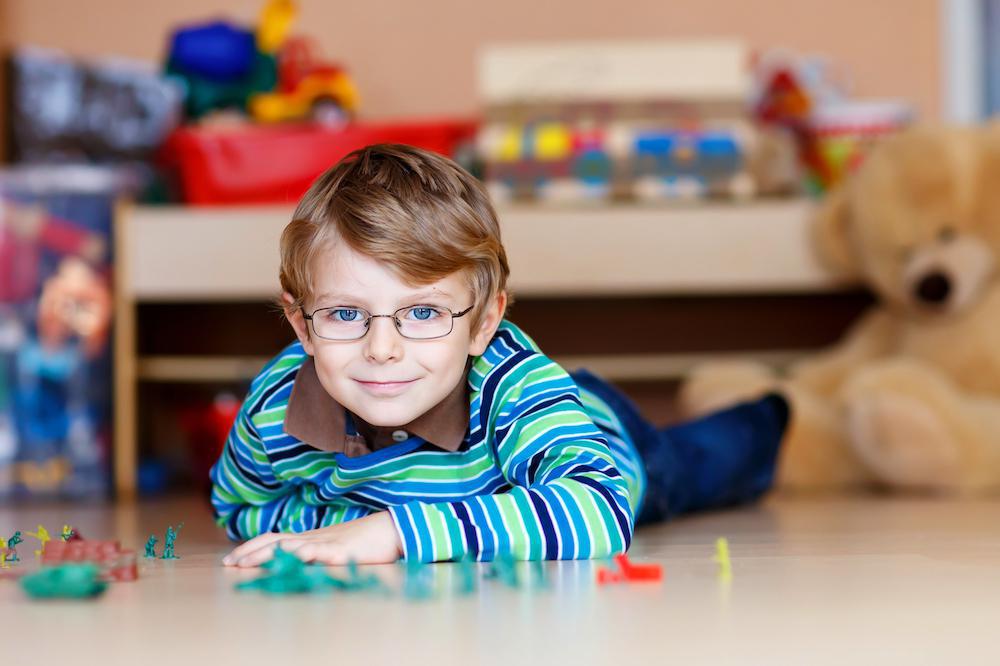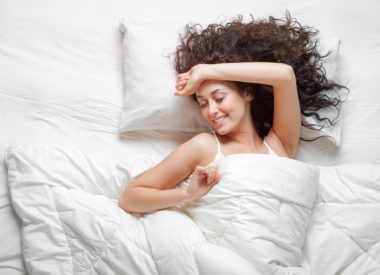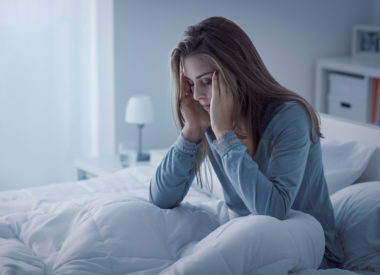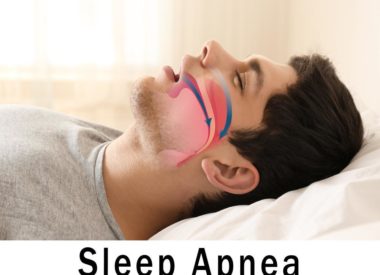ADHD vs Sleep Apnea in Children: Signs, Symptoms and Risk Factors
Sleep apnea in children is often undiagnosed or misdiagnosed entirely. Many children are being diagnosed with ADHD (attention deficit hyperactivity disorder) as they’re acting out and getting into trouble at school. Often, these children are being prescribed Ritalin, when the real cause of their behavioral issues is sleep apnea.
Obstructive sleep apnea (OSA) is a condition that involves repeated episodes of either partial or complete blockage of the airway during sleep. This disrupts the child’s breathing, and the body identifies this as a choking phenomenon.
What happens next is that blood pressure rises and the heart rate slows down. The brain then becomes aroused and sleep is disrupted. Its also common for blood oxygen levels to drop during an episode.
Around 10 percent of children are regular snorers, with between two and four percent of youngsters having OSA, according to the American Academy of Otolaryngology Head and Neck Surgery,
ADHD vs Sleep Apnea
The primary features of ADHD are impulsive, hyperactive behavior and inattention. The symptoms of the disorder can be mild to severe and often continue into adulthood. Sleep apnea is often mistaken for ADHD as sleep apnea symptoms in children are so very similar.
If your child has been diagnosed with ADHD but you feel they may have sleep apnea, its crucial you speak with your doctor as soon as possible to get a diagnosis.
Could My Child Have Sleep Apnea as Opposed to ADHD?
If your little one snores at night, and that snoring is interrupted by snorting and gasping noises that awaken them from their sleep, they could be suffering from sleep apnea. This snoring is often very loud, and when the noises start, this means that your child’s breathing is blocked.
As a result of not sleeping well, your child may be sleepy and grumpy during the day. He might be unable to concentrate in class. Other signs of sleep apnea in children include wetting the bed, and seeming hyperactive or overly busy. This is often why doctors may at first diagnosed a child in this position with ADHD rather than sleep apnea.
Diagnosing Obstructive Sleep Apnea
If your child has been wetting the bed, having night sweats, thrashing around in their sleep and gasping, snorting or snoring, you need to enroll your child into a sleep study to investigate the possibility of sleep apnea.
Behavioral symptoms will also often be present in children with sleep apnea. These can include:
- poor performance in school.
- misbehavior at school or at home.
- significant mood changes.
Not every child who misbehaves or is disruptive in class will have sleep apnea. However, if your child is suffering from a collection of symptoms that could suggest they have sleep apnea, getting a sleep evaluation at a sleep clinic is recommended.
Moreover, in youngsters under the age of three, children who are morbidly obese, and ones who have neuromuscular disorders, or craniofacial syndromes, a sleep test may be essential.
During a sleep study, wires are attached to your child’s head and body in order to monitor brain waves, blood oxygen levels, breathing muscle tension, and eye movement. There is no pain whatsoever involved in the test thats either performed in a hospital or sleep laboratory.
Sleep Apnea Risk Factors
If your child has enlarged adenoids or tonsils, it can cause her airways to narrow. Also, if your son or daughter is overweight, it puts him or her at increased risk of developing sleep apnea due to fat deposits around the throat and neck narrowing the airways. Another potential risk factor for developing the condition is if your child has cerebral palsy or any abnormality involving the tongue or lower jaw.
Consequences ofSleepApnea
There are various ways in which sleep apnea presents, and many are very similar to some of the symptoms of ADHD. Potential consequences of sleep apnea include:
- Learning and behavior. Its very common for children with sleep apnea to be disruptive, moody, and inattentive.
- Social. Your child’s loud snoring can be an issue if they share a room or are going on a sleepover.
- Growth. If you notice your child isn’t developing and growing as expected, be aware that sleep apnea can result in children not producing enough growth hormone.
- Enuresis. Sleep apnea can cause urine production to increase at nighttime. This can potentially lead to bedwetting.
- Obesity . Sleep apnea can contribute to obesity due to the condition causing your child to have higher resistance to insulin, as well as feeling fatigues during the day when they attempt to be physically active.
- Cardiovascular. Sleep apnea is often associated with an elevated risk of high blood pressure, as well as other heart and lung proble. It’s crucial to have your child diagnosed with sleep apnea by a sleep medicine team as early as possible due to the stigma, behavioral issues, and physical impairment that comes from the poor sleep thats secondary to sleep apnea. This is where a non-invasive sleep study at Sound Sleep Health can help.
Treatment for Sleep Apnea
After receiving a sleep test, if your child is diagnosed with only a mild case of sleep apnea, its likely the doctor will monitor her for a period to see if the symptoms improve on their own before implementing a formal treatment. When the symptoms of sleep apnea are a result of your child is carrying excess weight, your doctor will work with you as the parent to change your child’s diet and to encourage her to exercise.
If a child has sleep apnea due to enlarged tonsils and adenoids, surgical removal of these is the recommended, and can clear up the symptoms of sleep apnea immediately.
On the other hand, if the tonsils and adenoids are not the cause of a child’s sleep apnea, the doctor may recommend continuous positive airway pressure (CPAP) therapy. During the therapy, the child wears a mask that covers their mouth and nose, continuously pumping air into it to open their airways as they sleep.
What to Do If You Suspect Your Child Has Sleep Apnea Vs. ADHD
If your child has been diagnosed with ADHD, but you suspect that it could be sleep apnea they’re suffering from, don’t delay and get a diagnosis as soon as possible. Speak to your general physician about getting an appointment for your child with a board-certified sleep physician. With so many risks, yet so many treatments available to your child, there’s really no good reason not to.
Please reach out to us at Sound Sleep Health. We have three locations in the greater Seattle/Kirkland areas.



